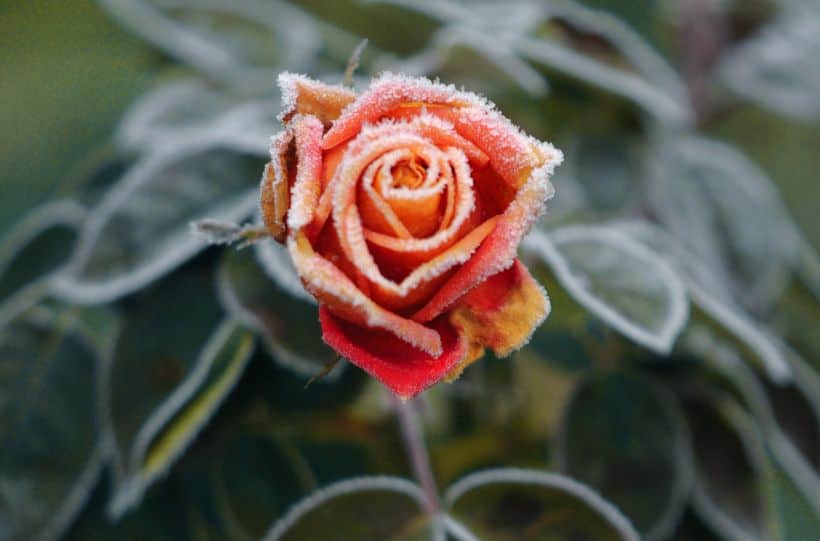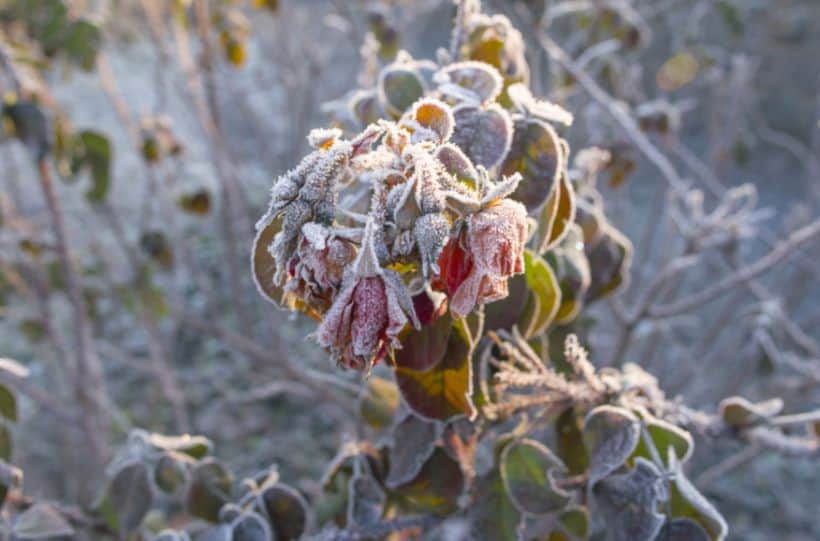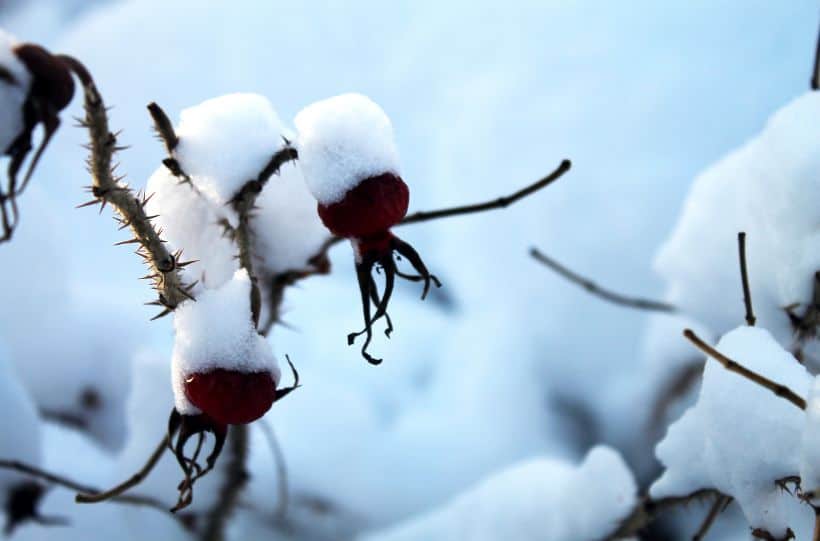How to Winterize Roses
Like many perennial flowers, roses naturally become dormant during the winter months. These beautiful yet delicate plants simply cannot survive and thrive during harsh frosts and cold temperatures.
Though they have a natural method of protecting themselves by becoming dormant, there are things you can do to help prepare roses for the winter. Learning how to winterize roses will increase the success rate of a healthy and happy plant that will bloom every year.

Do Roses Need Winterizing
Technically, your rose will probably survive if you decide not to take steps to protect it over winter. However, where winterizing your rose helps most, enabling you the opportunity to check your rose for diseases and remove dead or dying branches.
Removing diseased parts of your plant helps encourage new growth in the Spring whilst also protecting the rest of your plant from the disease spreading.
Also, consider the variety of roses you have, and whether it is naturally found in the area you live or not. A native plant is far more likely to survive the winter as it will have built-in natural defenses against the colder weather. Whereas a non-native plant that has been imported will need additional support, particularly if you live in an area that experiences sub-0 temperatures.
To be on the safe side, if you experience frost and sub-0 temperatures during winter, it is best to know how to winterize your roses.

How To Winterize Roses
There are a few different tasks you need to do to thoroughly winterize your roses and ensure they survive for years to come.
Stop Fertilizing
As you’ll know, roses are hungry plants that require regular fertilizing throughout the year to help them grow. The additional nutrients support their growth and encourage new blooms.
But during the winter months, you want to help your roses to enter a state of dormancy. Continuing to fertilize them will have the opposite effect and could cause harm to new, open buds.
To help winterize your roses, stop fertilizing them approximately 6 weeks before the first expected frost. This will slow down and eventually stop new growth from occurring whilst allowing time for fresh buds and shoots to close and protect the plant from frost.
Pruning
Pruning is an important step in maintaining and caring for your roses. Throughout the year, it is important to spend time pruning your rose plants and checking for dead or diseased branches.
An essential part of winterizing roses is to stop pruning at the right time. Unlike many plants, it’s important to stop pruning around the same time as you stop fertilizing your roses.
This will allow any new buds to seal themselves before the cold weather sets in. It also helps dead rose heads to remove themselves and form hips, which can become a vital food source for animals during the winter.
When you notice the leaves on your rose plants changing color and dropping, this is your plants’ natural defense against winter kicking in, and it enters a state of dormancy.
If you begin to prune your plant before winter, it will encourage it to produce new shoots, using up vital nutrients and energy needed to survive through the winter months.
The only pruning that should take place is if your roses produce long canes or there are signs of disease.
Those with long canes will need cutting back to help protect your plant from strong winds. Whereas for roses that show signs of disease, these parts will need removing to minimize disease spreading and promote healthy growth in Spring. A good time to prune your rose plants is after the first frost when they have entered a state of dormancy.
Mulching
Mulching is an extremely effective way of protecting your garden from the winter elements. It helps offer a thick layer of insulation from the damp, wind, and frost.
For roses, soil or compost is a good option to protect the base. Do not use soil from around your rose plants, as this can disrupt the roots and provide fewer water resources and stability around your plant.
Using fresh soil or compost, pile this as a mound around the base of your rose plant. On top of this, you can then add loser mulch to assist with drainages, such as bark chips or straw.
Make sure to remove any mulching however, and redistribute around your garden as compost as soon as the weather warms up. Otherwise, if left on for too long in warmer conditions, air cannot circulate and your plants become damp and disease can spread easily.
Alternatively, if you live in an area that does not suffer from strong winds and you have smaller roses, you can use a rose cone to protect your rose plants. These are cones that protect the entire plant during the winter and can be easily slipped over the top of your plant.
Watering
Watering your roses before the start of winter is crucial to provide a good start and water for the roots to store.
Approximately four weeks before the first frost, offer a larger-than-usual amount of water to your roses and the ground around them. This will soak into the soil around your roots and provide a water supply for longer than if you didn’t water them.
In Winter, the ground freezes in lower temperatures, hardening the soil and preventing any moisture to reach the roots.
Watering them before the first frost helps provide essential resources to help your plants survive the winter months ahead.
How To Winterize Potted Roses
If you have potted roses, there are a couple of alternative steps you can take to winterize these.
Firstly, if your pot is smaller and easy to move, you can reposition your potted roses somewhere that is sheltered and protected from frost, such as a greenhouse or inside your home.
If this is not an option, consider wrapping your whole plant in a circle of chicken wire. Inside the chicken wire, carefully add mulch, making sure not to damage any branches or flowers whilst also offering a thick protective layer of insulation.
Many plants need support to survive the winter months, especially if you live in a region that suffers strong winds, sub-0 temperatures, and harsh frosts.

Winterizing your roses and taking the necessary steps covered in this post will help not only protect your roses during the winter but also set them up for a healthy start the following Spring. Learning how to winterize roses will lead to a longer life for your rose plants and better blooming during the flowering season.
For more top tips on preparing your garden for winter, take a look at these posts:

